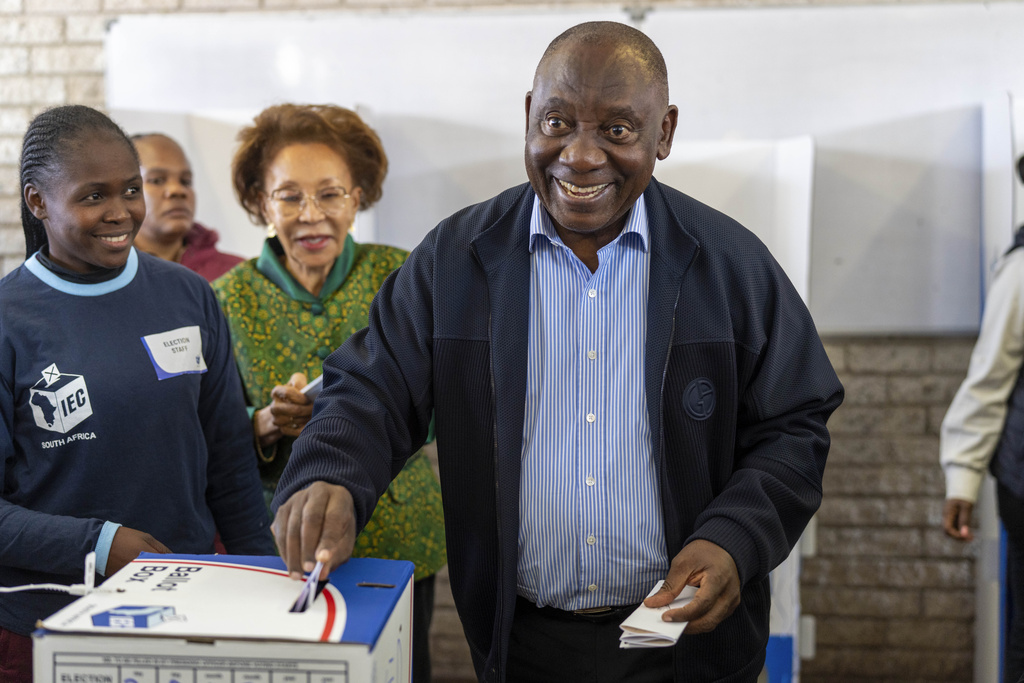
MIDRAND, South Africa - The African National Congress looked set on Thursday to lose the parliamentary majority it has held for 30 years, as partial election results, opens new tab suggested it would need a partner to stay in power - a first in South Africa's post-apartheid history.
If the final results confirm the loss of its majority, the ANC will be forced to make a deal with one or more other parties to govern - a situation that could lead to political volatility in the coming weeks or months.
"There will be checks and balances on the ANC power, but the ultimate risk is that the infighting could make governance ineffective," said Simon Harvey, head of foreign exchange analysis at Monex Europe.
With results in from 20.4 percent of polling stations, the ANC's share of the vote in Wednesday's election stood at 43.4 percent, with the pro-business Democratic Alliance (DA) on 24.8 percent, data from the electoral commission showed on Thursday
With results in from 20.4 percent of polling stations, the ANC's share of the vote in Wednesday's election stood at 43.4 percent, with the pro-business Democratic Alliance (DA) on 24.8 percent, data from the electoral commission showed on Thursday.
ALSO READ: South Africans vote in most competitive election since apartheid ended
The Marxist Economic Freedom Fighters (EFF) party was on 8.8 percent, while uMkhonto we Sizwe (MK), a new party led by former president Jacob Zuma, was snapping at its heels on 8.1 percent, with support concentrated in Zuma's home province of KwaZulu-Natal.
Pollsters and two of the country's three main broadcasters were predicting that the final results would confirm that the ANC - which won 57.5 percent of the vote in the previous election in 2019 - has lost its majority.
While early results skew towards rural areas where the ANC is relatively strong, results from urban centers where it is weaker build up later.
"I don't think it's likely for the ANC to reach a majority," said pollster Reza Omar of Citizen Surveys.

The ANC has won national elections held every five years since the landmark 1994 election, which marked the end of white minority rule and the ascent of Nelson Mandela as president.
But since those heady days the ANC's support has declined because of disillusionment over issues such as high unemployment and crime, frequent power blackouts and corruption.
READ MORE: South Africans begin casting special votes for 2024 elections
Under South Africa's constitution, the newly elected National Assembly will choose the next president. With the ANC still on course to be the largest party, that is likely to be its leader Cyril Ramaphosa, the incumbent.
By law, the electoral commission has seven days to declare full results, but in practice it is usually faster than that. In the last election, in 2019, voting took place on a Wednesday like this year and final results came on the Saturday.

The new parliament must convene within 14 days of final results being declared and its first act must be to elect the nation's president.


